
My god, you guys are back! I didn’t think you would survive the last article, it was so long!
Well friends, I have entered The Age of Yates, the man who holds the ostensible title of the George Lucas of magic. Much like Lucas, Yates was a guy with a few things under his belt, but is now defining his entire career around a series. He not only closes out this round of Harry Potter films, but is also the director of the upcoming “Fantastic Beasts and Where to Find Them”, as well as it’s already decided sequel out of an anticipated 5 more films. And I can most certainly see why, because even after viewing only one title from his tenure, I can tell that this man was made to make these films.
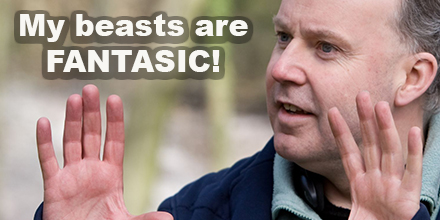
It’s just a shame he had to start with this one.
I’ve been genuinely surprised by how much I’ve been liking these films, but I think it’s fair to say that this is not, by traditional standards, a good movie. It’s not that there aren’t really amazing elements to this film, but overall it also showed a glaring weakness in the way that JK Rowling structures story, which is something that I should have no business being able to deduce without having read the books, yet here we are.
As we’ve been going through this series I have been trying to talk about two very separate but integral things, story and its translatability, as well as the actual film work itself. Obviously there’s been a lot of stuff that gets lost from transition of book to film which until this point has not actually hindered my enjoyment of any of these films. If I had lived under a rock my entire life, suddenly to emerge and watch these films, I might be a little confused at certain moments, but I would not know that they are based on books. Until I got to this film, because not only was this script a mess, but half the story was so wildly misplaced that I genuinely have no idea where the series is going now.
That being said, what happens when you give a genuinely genius fantasy director a shit film? The answer is “Harry Potter and the Order of the Phoenix”.
To begin my descent into chagrin and deafening fury, we are given the beautiful tableaux or the playground from “Terminator 2” and for some reason, the chaffiest Dudley Dursely.
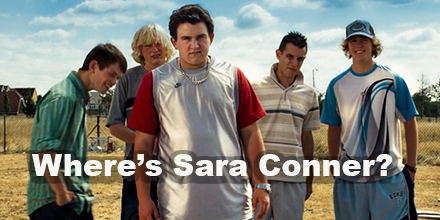
I physically threw things at my television when his idiot face showed up.
With yet another lack of an explanation as to how the Dursleys even let him in the house again after Harry technically victimized their horrible aunt, the teachers of Hogwarts decided that after a horrible trauma of watching a kid get killed by Hitler, oh also Hitler’s back now you guys, let’s send him to live in emotional solitary confinement all summer with limited protection.
We have a poorly written scene dealing with post traumatic stress disorder (PTSD), complete with a cruel child gay joke. It was so off tone for these films to do something like that, it really took me aback.
Thankfully Yates fought this transcendently horrible diatribe by testing the grounds of his new tone in the form of what he does best: magic.
Now, magic is hard you guys. Showing the practice of magic on screen has always proven to be astoundingly difficult to filmmakers mostly because, as an unseen force or entity, our brains will often grasp the application as more science fiction based. Throwing something across a room with the flick of a wrist, for example, is something that we could see happening in a Magneto vs X-Men fight as well as two wizards really going to town on each other in “The Fellowship of the Ring”. The only difference is the sound effect. Showing the physical manifestation of magic is worse, because it’s no different from asking someone to show the tactile manifestation of physics. It normally results in swirling colorful clouds, be they in the sky or a cauldron.
But the same way that George Lucas made me look at the idea of a space sword differently forever, Yates manages to establish the tone of being able to inspire magic out of nowhere, pulling it into the very realistic and non-magical realm of a small London suburb. Rather than just giving us billowy, menacing clouds, we instead are met by an ethereal pull from the sky, the weight of which drags along like a heavy, velvet cloak. And that’s just the rub, this magic is tactile, there’s a feel of physics behind it that holds the gravity of how it exists in an otherwise natural and ordered universe. The result of which is a breach, a punch through from the other side that results in a Dementor attack in Harry’s own backyard.
Dudley is hurt I guess. For a family that decidedly knows that magic exists and that it has a tendency to come into the real world with the explicit intent of killing their family members, the Dursleys have an unrealistically difficult time coming to terms with the idea that Harry is telling the truth about their crazy attacker. Thankfully though, we finally begin to see the results of Harry’s actions, as he is finally expelled for using magic outside of school.
A series of people you might recognize, now with saucy purple haired lady friend accessory, show up to bust Harry out of this strangling device and move the plot forward. I think the purple haired lady is also a chameleon lady, as almost everyone in the wizardly world is also an animal kind of. Also existing is Mrs Figg, who has been dropped with no real explanation into this small neighborhood to look out for Harry this summer. Sadly her presence is so shoehorned and clunky it is a genuine distraction, leaving her to be nothing more than an actual walking plot device, which quite frankly is just lazy.
The result of this super-rescue though is something I didn’t even realize I was missing from these films until I genuinely got goosebumps when I saw it, an actual synchronized Blue Angels level broom flight across London, with Buckingham palace at night as the backdrop.
It was the COOLEST. THING. EVER.
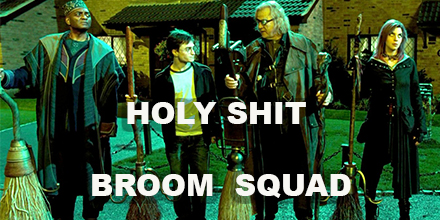
When the default terminology in these films is always the masculinized word “wizard”, one has a tendency to forget the more traditionalized feminine archetypes of the genre. Much like the commercialized Salem witches of Halloween delight, we got to see these characters fly across the moon and off into the night with an almost Peter Pan level of whimsic combination. This was a perfect example of pulling not just the fantastical, but the traditional stereotype into the realistic realm and it was astoundingly powerful to see.
Their destination is the decrepit house of Sirius Black, where we get to learn a little more about his family history of being a rich white guy during Wizard World War I. The Weasleys are there, as well as Hermione which just solidifies the idea that’s been squatting on the back of my brain pan since “Chamber of Secrets”. Where are her parents in all of this? We have seen them in the background of one scene.
We learn that apparently in Wizard World War I, Albus Dumbledore created this magical battalion, The Order of the Phoenix, and these guys are the remaining members who are bringing the workings of a resistance, since the magical world totally doesn’t believe that Ray Fiennes is back. We get absolutely zero explanation as to how Nymphadora Tonks, who apparently hates her first name, knows any of these people. She also seems to be exponentially younger than the rest of these men, so I can’t imagine they went to school together. My guess is that she’s Lupin’s daughter or something, but again, it would have been nice to be given literally any context to her background because she is the only previously unintroduced character on this minimum 10 people deep team.
Anyway, all I really gathered from this was that Dumbledore’s a staggeringly overrated prick. This is such important information that needed to be relayed, minimum, two films ago. Apart from that we’ve learned that Ron and Hermione have been told to lie to Harry and not write to him during the most painful time in his life since he lost his parents. There’s no real explanation given and I genuinely cannot for the life of me understand why people follow this man as blindly as they do. He’s genuinely tied with the Dursleys for people in these films I just want to die in a fire.
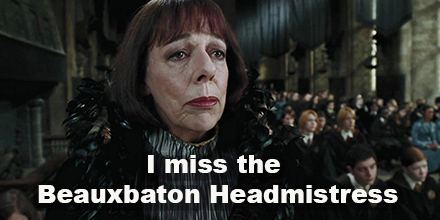
My seething hatred of this otherwise useless character aside, we are also graced with some of the finer points of cinematic decision making. Specifically, someone has finally given all of the Weasley boys haircuts.
The Weasleys continue to be some of the most interesting characters in this film. Momma Weasley does a nice little two line shut down to Sirius saying that Harry might as well be their son, and that is wildly accurate. This is especially interesting as they continue to try to push Sirius, a deeply flawed character who I enjoy greatly, as a father figure for Harry. This film does an excruciatingly good job of showing how shit he would actually be at that job. It seems idyllic, the fairy tale notion of Harry going off and living with Sirius after all the conflict is resolved as their two dude bachelor pad family, but it is not truly a healthy family. Rather it would just be two broken men who cannot cope with their grief. There’s no nurturing, just paralleled pain with a distinctly unbalanced power dynamic. Sirius Black sees his dead friend’s child, the Weasleys see a son.
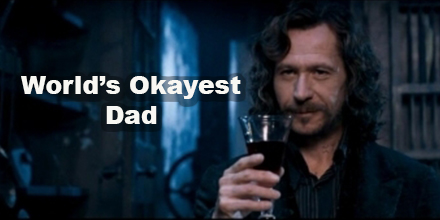
All of this actual cool wartime shit and interesting character development is cut tragically short though as we have to go deal with Harry being “expelled”. They dress him up exactly like war hero James Potter, which is an astoundingly creepy way to make him look like someone worth taking seriously, and proceed to bring both him and the audience to our first magical city to date. A combination of the Emerald City with some 1940s structural flair, it was such a cool moment that was absolutely wasted on the fact that we had to keep the story moving.
When you’re translating from the book to the page, visuals are key. As a result there is a certain resonance to be held with these fantastical places. When you first see Rivendell in “The Fellowship to the Ring”, there’s reverence to it. Same could be said about the lamp post in “The Lion the Witch and the Wardrobe” and the previously mentioned Emerald City of “The Wizard of Oz”. We get a short pan over the extravagance of this super cool thing before we are literally whisked away into this trial and I just felt so cheated as an audience member as a result.
This is where the film started to show the cracks in its foundation, which for all you die-hard book fans out there, you’re probably not going to love me for this next bit.
“Harry Potter and the Order of the Phoenix” has all of their conflict based on two major points, and the first that we are introduced to is that people don’t believe Harry or Dumbledore that Voldemort is actually back in action. The idea of a government being so twisted and warped by fear and denial is absolutely an interesting point that needed to be discussed. Two movies ago. There has literally been a blitz bombing on the equivalency of the Super Bowl, where they tattooed the sky with snake based swastika. I’m sorry JK, but you’ve already set your escalation point too high for this to be a believable scenario.
Cornelius Fudge, a character who has not had more than 20 words in 4 films, is suddenly a figurehead that I was supposed to be invested in as a result of what he stands for, a frightened leader. All of the other characters, including Neville Longbottom’s dead parents who only come to life in the magical equivalent of Boomerang, have stronger emotional connections with the audience than this man does.
Anyway, after the world’s dumbest literal witch hunt, seemingly held with the intent of railroading a child out of his education, complete with appearances by such people as “that Privet Drive lady we’ll never see again” and absolute worst character witness Albus Dumbledore, Harry Potter is acquitted of something that he was literally told by the Judge was bullshit in the third film.
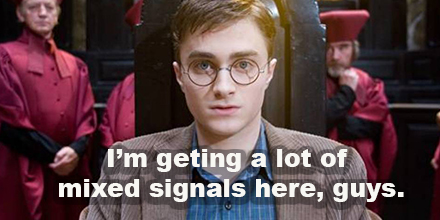
Thankfully we’re back to the train in which we get one solid, clear message about what Harry Potter’s time at Hogwarts is going to be like this year. It’s just gonna be PTSD-o-clock.
Upon arrival, we finally get the gang back together, now including Neville Longbottom. This genuinely warms my soul because his transition from background character into main cast member has been so seamless and natural. That character has truly earned his hero status.
We are also introduced to the most adorable little lady in this series to date, Luna “Looney” Lovegood. I absolutely adore the idea that in order to access some types of magic, you need to be a little touched. I assume that this is what they were trying to go for with Professor Trelawney but sadly she was just a little too on the nose. Luna is the exact opposite of on the nose. In fact, she was yet another great example of taking a traditional fantasy archetype and turning it completely on its head. Rather than being the black clad goth-y teenage witch obsessed with dead things, she is portrayed as this bright, ethereal presence of life who just happens to say really weird things.
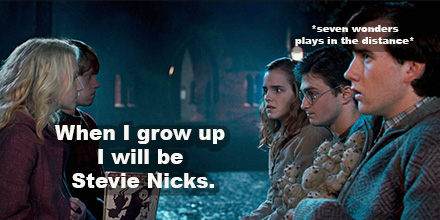
There are two new professors at Hogwarts this year. Professor Snape’s slow clap for the fact that Hagrid will not be returning as a teacher gives me life. But of course the one that everyone remembers is the full introduction to the other deal breaker for me in this film, Professor Delores Umbridge. Imelda Staunton, in a get up that I can only imagine had a better effect in the books than it did on screen, is given a forced speech where political ideas for the story are fired at the audience with the subtlety of a tee shirt cannon. The proverbial red sun setting behind her though is that these are the implications of what happens when the government interferes with education.
This brings me to my big issue with “The Order of the Phoenix” that made the bulk of the film almost completely unwatchable for me.
A lot of what I have enjoyed about this series up until this point was the subtle weaving of history into this fantastical realm. Sometimes it’s not so subtle, but that’s ok because ultimately the audience scales a lot younger and a bolder stroke can sometimes have more impact. That is also, arguably, the difference between good and bad writing. This brings me to notate the biggest crime a writer can commit. Delores Umbridge is the laziest character I had ever seen on screen.
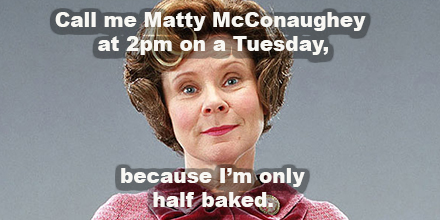
We get it. She’s Italy. If we’re going to be making the comparative historical notations here with all these World War allegories, Delores Umbridge is the walking embodiment to what fascism can do for you. On the nose doesn’t even begin to describe the flagrancy of this character. But I could forgive politics with a purpose. The issue is that beyond being a walking metaphor, Delores Umbridge is just a two dimensional, unchecked psychopath. Half of this film is built on the premise of her mounting authority through a series of strenuous regulations and torture tactics on children. There’s a lack of checks and balances “due to the fear of Ministry retaliation” but as we saw even when we were back in wizard court, when this woman was softballed into a scene, she’s clearly unhinged.
The result is just a series of escalations that are shown but not earned. She does something horrible, the plot moves forward without her, she does something equally horrible but different, the plot moves forward without her. Much like my issues with the magical government not believing Hitler is back, this character presents a lack of understanding in how stakes work in storytelling. She started at a 8 1/2 out of ten on the Norman Bates scale and just kind of sits there, never really escalating. I genuinely can’t tell if this is a book or a screenplay issue and would be genuinely curious to hear what book-people think of the treatment of this character in the film. Sadly, the result is a character who was so egregiously frustrating due to poor writing, with such an abundance of screen time, that had I been in the theater I probably would have walked out.
Thank goodness there is one clean thread of good story writing that keeps me hopeful, which is the evolution of Harry and the other children.
Because between a smattering of terrible Umbridge scenes, we begin to see Ron and Hermione really struggling to help their friend, despite not really knowing what to do. There is a lovely sequence of Hermione telling Harry that “It’s perfectly simple”, only to have her friend reply in earnest that it is not, and that she does not understand. It is also beautifully countered by her response. “Then help us to.” In so many ways, this sums up how far we have come from the first film, and how truly moving that is. It is truly genuine, seeing how Harry has come out on the other side of his experience, making different fractals of his personality available to make new connections and grow. They are also played, in a post Viktor world, as an emotional romantic couple.
The distancing from his friends leaves Harry open to new perspectives, specifically that of my new favorite white witch. In a simple scene of playing with misunderstood animals that only they can see, Luna and Harry have a wonderful heart to heart, talking about the psychology of evil.
It was remarkably heartening to see Harry finally getting, for lack of a better way of putting it, a little therapy in understanding his ordeal. Where all of the adults of these films have consistently put labels on him, none of them actually really reach out to understand or help him beyond helping them cope with their own issues. Luna Lovegood is the first character to truly talk with him about his feelings, and how to process them, which is what is able to propel him forward and take back his life.
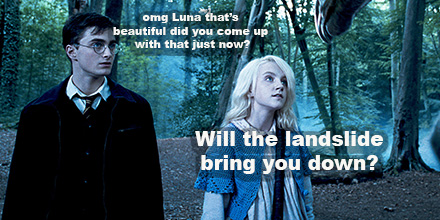
There is another smattering of dumb Umbridge things after, I couldn’t be bothered to care. Emma Thompson is fired for all of a split second, which is portrayed like firing the slow but good hearted janitor. There’s literally no consequence to the sequence as it’s just another excuse for Umbridge to wag her fingers, hop on her bike with the little dog in the front basket and say “I’ll get you next time my pretties”.
But getting back to the actually cool stuff, Harry, his friends, and the other students of Hogwarts finally decide to stop trying to listen to all the adults in their lives who have been coddling them for five films and take matters into their own hands. In the spirit of how so many rebellions begin, the young people gather in a tavern off the beaten path to discuss the problems with the world. Some are on board, some are skeptical, but overall I was rewarded with one of the best speeches I have heard come out of Harry’s mouth since I began these films.
In the most non traditional fantasy hero fashion, Harry actually rips the heart out of his own legend to show his friends the veins that make it beat, explaining that most of the stuff that he has done that people interpret as so heroic has been with the help of others, exaggerated, or blind luck. This was so interesting and refreshing to see in a fantasy story, as the “Chosen One” trope that plagues the genre is often difficult to break and still keep the hero whole. But Harry Potter not only manages to dismantle his heroic legacy, but takes his place as a leader. The kids decide to learn how to fight back.
This film had a distinct drop in whimsey, dark or otherwise, as compared to previous films so it was remarkably refreshing to see Neville Longbottom find this film’s weird magical item drop in, the Room of Requirement. While I have a slew of questions agreeing with Ron’s assessment of where is this place when students are dashing to find a restroom, it was a pleasant reminder to see that Hogwarts castle remains the weirdest live action Escher painting.
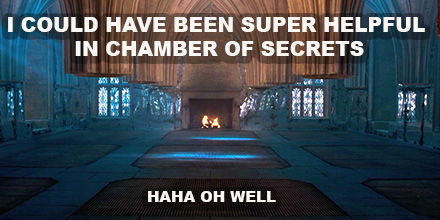
The children begin to train, with Harry Potter as their battalion leader with experience in the field. They call themselves Dumbledore’s Army, though I’m not entirely sure what Dumbledore had to do with any of this, and we get to see some very fascinating moments with students coming out of their shells as well as showing how different students are better suited for different types of magic. In traditional military fashion, some are better suited for land, air, sea, and medical, but together they are a well oiled machine.
Also Ginny Weasley continues to be the most badass lady and I remain genuinely furious that these stories are not about her. This young woman is a tank. They consistently show how flipping cool she is and yet she never even has lines and I just want to be her best friend forever.
Speaking of ladies that make me furious though, it’s worth taking a moment to note that Egg is still in this film. Did I say Egg? I meant Cho Chang.
We are presented, as a result, with a good but poorly executed idea, which seems to be the theme of this film. Cho had the potential to be a remarkably complex character, bonding romantically with the last person to see her romantic liaison alive. There’s a lot of meat on that proverbial bone to work with for interesting story development. If this character had been around for more than one film before, I might have felt more of an investment in her tragedy. Sadly instead, all we really get is an exposition speech from Hermione about the reasoning behind why when Cho and Harry half heartedly kiss under a live action photo of her dead prom date, it might be a little weird and not worth pursuing. Also Cho is crying while they kiss. This whole side story is a nightmare.
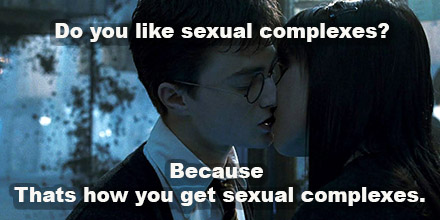
Umbridge recruits Hitler youth as a plot point. Spoiler alert, they’re all Slytherins. They proceed to be remarkably bad at their jobs.
Harry’s weird dreams become more vivid, revealing that apparently he is a kind of “Lord of the Rings” palantír with Voldemort. He can see what the enemy is doing, giving this underground resistance a leg up in this fight. This is also coupled with yet another amazing moment for Potter, where he screams at Dumbledore to look him in the eye and answer his questions. He is just as done with this old man’s bullshit as I am.
The result of this is that Professor Snape finally becomes useful in this fight, as he is asked to provide what is ostensibly waterboard training. If this is why they keep this guy around, that’s messed up, but unfortunately super helpful in this case.
Thankfully before an extensive amount of that training, we are gifted with a simple pleasantly that was truly moving. Harry finally has somewhere to go home to for Christmas.
We get some backstory on Sirius, essentially explaining that he was a defector from a Nazi family. Sirius Black also finally comes full circle in this film, showing the true and realistic extent of what it means for him to have been a soldier in the first conflict. Like so many soldiers coming off of World War I in a time when a viable mental health system was all but non existent, he is a victim of the ghosts he sees everyday. Unfortunately one of them is not a ghost, it’s his best friend’s child who happens to look exactly like him. He is able to muster sage, soldierly advice for Harry, stating that he is allowed to be angry but that it is how he channels that anger that matters. Harry of course reads this as fatherly, the dichotomy of the family he wants vs the family that he already has hanging over every scene in the house.
The entire third act of this film is nearly unwatchable dreck.
To truly describe how poorly this act was written, may I offer you a scene wherein the groundskeeper takes down the talking paintings. No explanation. He later puts them back up. No one seemed to have even noticed nor cared that they were gone. I am sure that this had something of a semblance of significance in the books, or rather I would hope, but because there was literally no reaction or differentiation in outcome, this is just dead air time. That’s the level of watchful detail that was put into this third act.
Abstract painting scenes aside, it’s more Umbridge garbage with only two things worth mentioning and only one of the two that is actually interesting. One, Dumbledore is almost arrested while taking the rap for Dumbledore’s Army, but instead he apparently turns into a bird to be used as a “surprise” deus ex machina later. The other is that due to their torture training, we finally get a little more backstory on Professor Snape.
So, for those of you who have been so kind as to follow along on my journey these many weeks, you know that my big thing since day one has consistently been asking what Snape’s weird deal is all about. This is because as a girl who likes fandom and has been on the internet before, I have abstractly seen two wildly different camps in regard to his character. People either love him passionately with the fever of a thousand suns, or they absolutely hate him with the devastation of a thousand cancers. Up until this point in time, Snape has just been a two dimensional snark machine, which has only stoked my proverbial thought fire in trying to figure out where these astoundingly strong fan feelings come from because apart from just being Alan Rickman, he hasn’t done anything.
In a cool little mental push back from Harry during training, it is revealed that Severus Snape was the object of ridicule from Harry’s father and friends when they were all in Hogwarts together. Specifically what is cool about this is that Harry is actually given the opportunity to see that not only was his hero of a father flawed, but moreover he was a real shit of a kid. I like that the director chose to use language that harkened back to some of Dudley’s behavior in the past. After a film of weepy hero worship on Sirius’ part, this was a really beautiful reminder that it’s all about how your story is told by others. It also finally explains why Professor Snape had an instant dislike for Harry. The result, I’m curious to see where they go with this, now that I have a little more information.
Anyway, the third act ends in the Weasley twins deciding that they don’t need no education and blowing up the wizard SATs with fireworks. A fitting end to a terrible plot line, but also a PTSD trigger wrapped in a vision sequence. It is revealed to Harry that his only living family member is about to be killed. We have a triumphant bridge moment where the battalion confronts their commander, insisting that he cannot go alone and as a result, we finally get to see why David Yates was hired.
The kids fly magic death ponies to London to in order to fight Hitler.
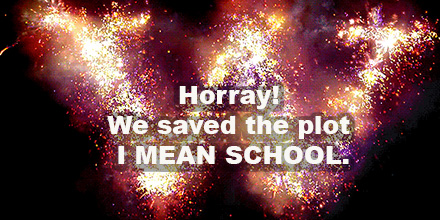
The kids head into what I’m pretty sure is the warehouse where they stored the Arc of the Covenant at the end of Raiders, also known as the Department of Mysteries, in an attempt to rescue Sirius. This is of course a trap. They are suddenly surrounded by Death Eaters, Sirius is nowhere to be found, and as a result Harry has accidentally led their enemies to a very powerful artifact that Voldemort has sent his minions to retrieve. Apparently Professor Trelawney predicted a prophecy involving Harry and Voldemort which was remarkably vague but people seem to be putting a lot of stock in, including the Hitler allegory himself. Something along the lines of neither can live while the other survives.
I took this as meaning that if Harry Potter killed himself, all of these issues would be over. Then again, I guess that’s why I’m a Slytherin.
Lucius Malfoy shows up with some less KKK looking, now fancy upgraded Death Eater masks. We are also introduced to Bellatrix LeStrange, Sirius Black’s cousin, portrayed by Helena Bonham Carter’s worst Bernadette Peters impression yet. For all that I loved about how they turned Luna Lovegood so far away from the classical witch stereotype, they brought it all back with Bellatrix. She’s a cackling, wild haired, snaggle toothed Halloween decoration with no real grounding other than just “she’s the crazy one”. I couldn’t help but feel though that maybe this character had fallen victim to her own casting, as Helena Bonham Carter has had a tendency in the later years of her career to be interchangeable in the performance of her “crazy and corseted” roles.
The being said, between her and Lucius, they’re assembling the world’s greatest Nightwish cover band.
A huge, super-dope magic fight ensues between the kids and the Death Eaters. Again, I cannot express this enough, what George Lucas did for the space opera, David Yates has done for the way we film magic. This fight sequence is palpable, visceral, and provided weight and consequence to the cause and effects of magic as a weapon. He also shows how the children are thinking like soldiers. They’re more guerrilla, more clever than their aging adult counterparts. Though not as advanced in their methods, they hold the element of surprise which is just enough to get them through this first fight.
Yates makes a big point to show Ginny Weasley absolutely crushing it at being a magical force to be reckoned with. This film has made such a strong point of showing her in a position of authority and power, I’m wondering if maybe it was someone’s way of apologizing for the blatant sexism of the last film. I’m just glad that I was wrong in my initial assessment that she was going to be a mommy look-a-like love interest.
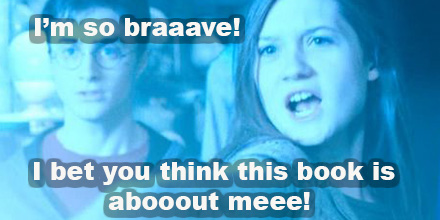
But as accurate as it would be for the kids to have the upper hand at first, it is equally accurate that eventually they would be overtaken by those who have more seasoned war experience. Thankfully, the Order of the Phoenix shows up here in the 11th hour, making me drastically wonder why the title of this story was called such as their presence was profoundly diluted by all of the Umbridge miscellany that held this story back.
Sirius, telling Harry to get his men out of there along with an accidental slip, calling Harry James, is killed by a cackling stereotype. Despite his last moment being one of astoundingly crassness, my heart hurt. He was a very well written, flawed character.
This also of course insights the full wrath of Harry Potter, as he has literally just watched his last surviving family member die. You could almost hear the “Kill Bill” rage music behind him.
Suddenly Voldemort shows up to give a “we’re not so different you and I” Bond monologue, which is fine because I could listen to Ray Fiennes read the phone book. I’d argue it’s a little cliche, but in all honestly it’s actually surprisingly appropriate now. The Gryffindor/Slytherin comparisons they’ve been hammering home these past few films really stick with you as you remember just how easy it is to be the lonely kid at Christmas, as well as seeing just how angry Harry has become. They really aren’t so different at this point in the series, Harry’s just one bad move away from going full bad guy.
Dumbledore shows up, because of course he does. He’s basically the old man in a Zelda game, it’s maddening. Thankfully though before I had time to spit vehemence at my dislike of this character, David Yates gives me the coolest physical personification of magic I have ever seen in my entire life, and as a hard core fantasy fan I could have cried.
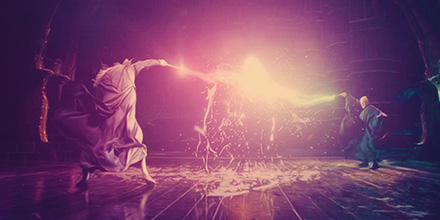
Calling from every known physical element, we see colored energy flashing, rumbling, dripping, and swooshing through the scene, embodying all of the different elements that could be pulled out of nothing. Some of these things manifest into full elemental forms, while other times they hang present and collected in the air like a thick fog. It was the first time since I started watching this series that I knew at some point in time, I had to see these films on the big screen. The fight between Dumbledore and Voldemort was masterful and set a new bar for our standards in visuals for the fantasy genre.
But tear worthy visual work aside, the Hitler allegory is particularly juiced today, so Dumbledore takes a dip and as a result we get a final Harry/Voldemort show down where Harry is forced to overcome his anger by remembering that even though Sirius is gone, he does have a family. He’ll always have a place to go home for Christmas, and that’s worth fighting for.
The ministry finally shows up, WAY late I might add, and we get a too-little-too-late speech from Dumbledore about how he just didn’t want to cause Harry pain, which is why he has been keeping all of this information from him. Well, people are dead Albus. Maybe this should have been the apology given after Harry saw a kid get killed rather than sending him to live with his distractingly fairy tale step-family for a summer.
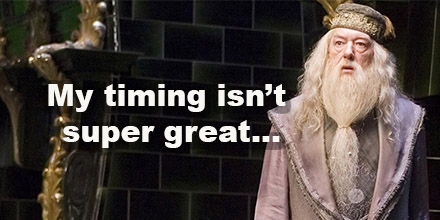
Ultimately though, we end back at the school with an unexpectedly poignant end note. As Harry wanders through the halls, he comes across Luna. The other children throughout the year have stolen her things and she is requesting them back through a series of “missing” signs, which absolutely broke my heart. We have a genuine exchange where she comforts him about the death of his Godfather and in the wake of learning about Professor Snape’s background, I couldn’t help but feel hope in this young lady, who could have been so bitter and grown up to be just like him, still find love and acceptance when there was never a better time to give up.
So, while this film ended on an absolutely beautiful note, with a smattering of beautiful scenes in between, overall it’s a mess of a story. The ups and downs are just so egregiously unbalanced, I felt almost seasick watching. That being said I can’t help but feel that a lot of this mess could have been avoided by Ms. Rowling, if she had just been the third book instead of the fifth. Right after the Chamber of Secrets was opened and Harry Potter was running around saying Tom Riddle was behind it, that would have been the perfect opportunity to drop in a story about people not believing him. This was just too much going on in the wake of Cedric’s death. For all I know, it was the screenplay that really cocked this story up, but it does leave me in a weird place moving forward.
I can only hope that as I move on to “Harry Potter and the Half-Blood Prince”, I am able to get a little more of that subtlety and structure back.
So! Final thoughts going into my next watch…
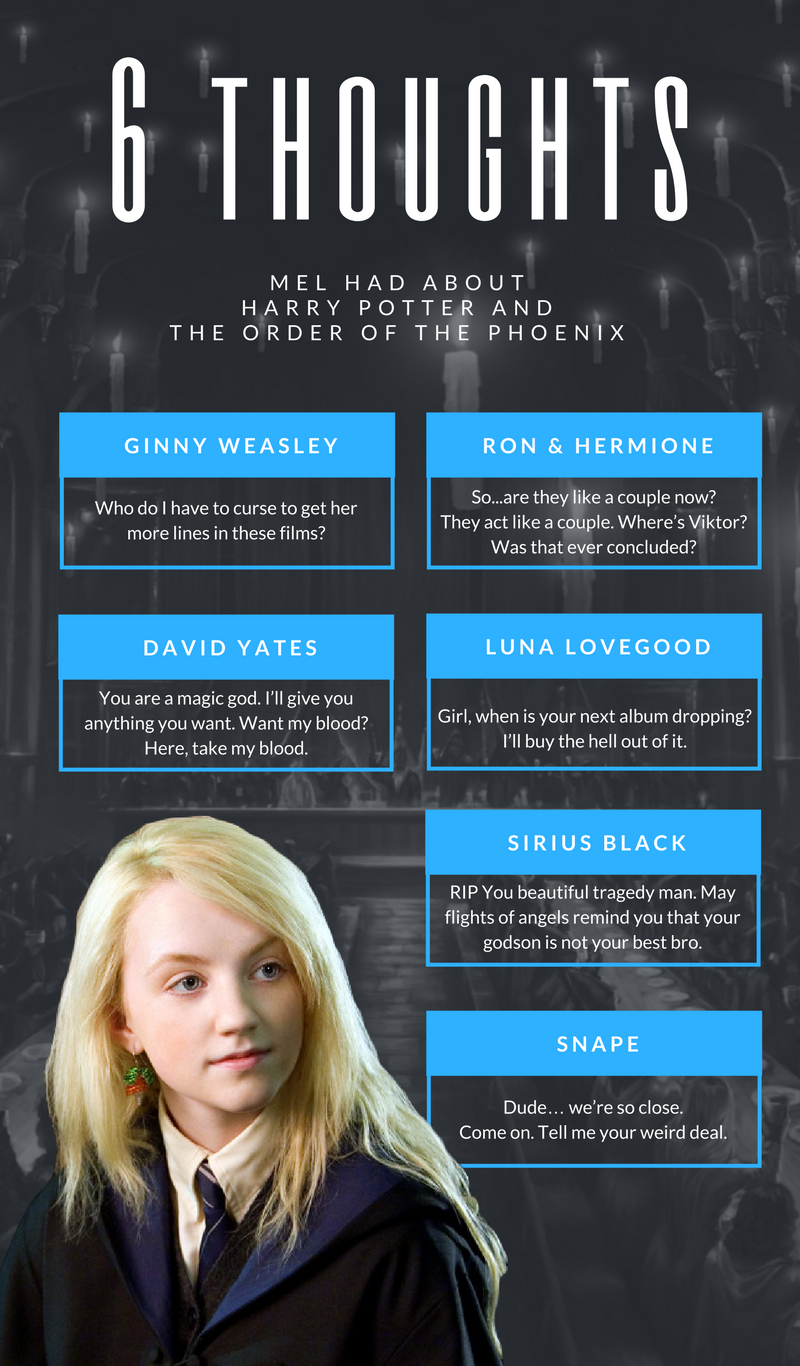
So join me next week guys for “Harry Potter and the Half-Blood Prince”! After this flick, you know it’s going to be an interesting journey!
Check out more instalments in this journey below!

![[REVIEW] ORIGINAL SIN: FROM PREACHER’S KID TO THE CREATION OF CINEMASINS](https://geekd-out.com/wp-content/uploads/2021/05/41ZJITfta1L._SX337_BO1204203200_-150x150.jpg)
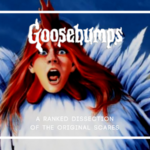
![[REVIEW] ‘THE LION KING’ ISN’T THE REMAKE WE WANTED BUT ONE WE’RE GLAD TO WATCH OVER AND OVER](https://geekd-out.com/wp-content/uploads/2019/07/TheLionKingFI-150x150.jpg)